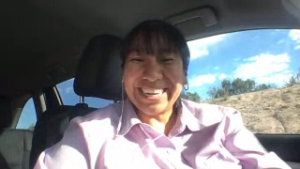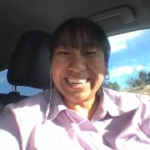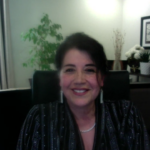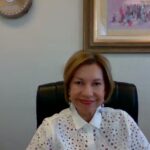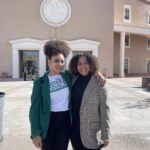Description
Colleagues Monica Jojola (53), Gina Euell (56), and Phoebe Suina (46) reflect on their experiences as Native women business leaders and share their biggest influences and the lessons they have learned.Subject Log / Time Code
Gina (G), Phoebe (P), and Monica (M) introduce their companies Exhibit Solutions of New Mexico, High Water Mark, and Montech Inc., respectively.
G shares how she came to start her business while working at a graphic design company. She recalls starting her business from home and then expanding.
P shares how she went from consulting different government agencies in environmental compliance to creating her own company to support her community in light of environmental disasters they were facing, particularly in response to wildfires and flooding.
M recalls feeling motivated to start her own company in light of the federal government’s push to support women-owned businesses. She talks about the importance of giving back and sharing the lessons she has learned with other Native women business leaders.
G, M, and P share how their mothers and grandmothers are their biggest influences and motivators.
M, P, and G share the lessons they have learned as business owners and advise other women in business to support one another and make use of the resources they have.
Participants
- Phoebe Suina
- Monica Jojola
- Gina Euell
